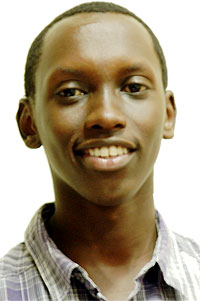WHEN we were in primary and early secondary, you would ask someone what they wanted to be in future and they would say doctors, engineers and pilots among many other impressive jobs.


WHEN we were in primary and early secondary, you would ask someone what they wanted to be in future and they would say doctors, engineers and pilots among many other impressive jobs.
Just two weeks back, I asked my little brother what he wanted to be and he said he wanted to play football for Real Madrid FC like Christiano Ronaldo.
Why do we go to school? Let me answer that for you - to get skills that will get you money in the future. Whatever reason is given, the bottom line is that it all comes down to making money.
School is basically supposed to give a child the foundation of general knowledge and insight to how different things work to prevent them from what is referred to as a dull future.
After school, one specialises in their interests. When you watch shows like American Idol and The X Factor, you will discover kids as young as four years old who sing like they’ve been at it for years. This is the part I don’t get; why waste that kids time with biology and physics and other subjects that she has no interest in whatsoever instead of getting her into music school?
I know the art industry in Rwanda isn’t as developed as that in the west but this is precisely the reason why: we kill our skills by insisting on only school for about 20 years (nursery, primary, secondary and university) and then we think we will nurture talent at the age of 26.
Talent is only an asset to someone when they nurture it. Take a quick look at movie actors in Hollywood like Raven Symonè who started acting at the age of five in the movie Ghost Dad. Her role in The Cosby Show won her acclaim and by the time she did That’s So Raven, her talent was unquestionable. But had she started her career at say 25, we would be telling a different story.
Letting a child prioritise their skill at a tender age helps them master it. Need I say, ‘practice makes perfect’ and talent development comes with mistakes and lessons. At a tender age, they get to learn and have many more years of mastering and being the best at what they do. Their talent becomes natural to them.
School is just that one place where children are supposed to get basic knowledge about life, make friends and forge a way to a bright future. If someone has found their calling at a tender age, parents should develop it.




